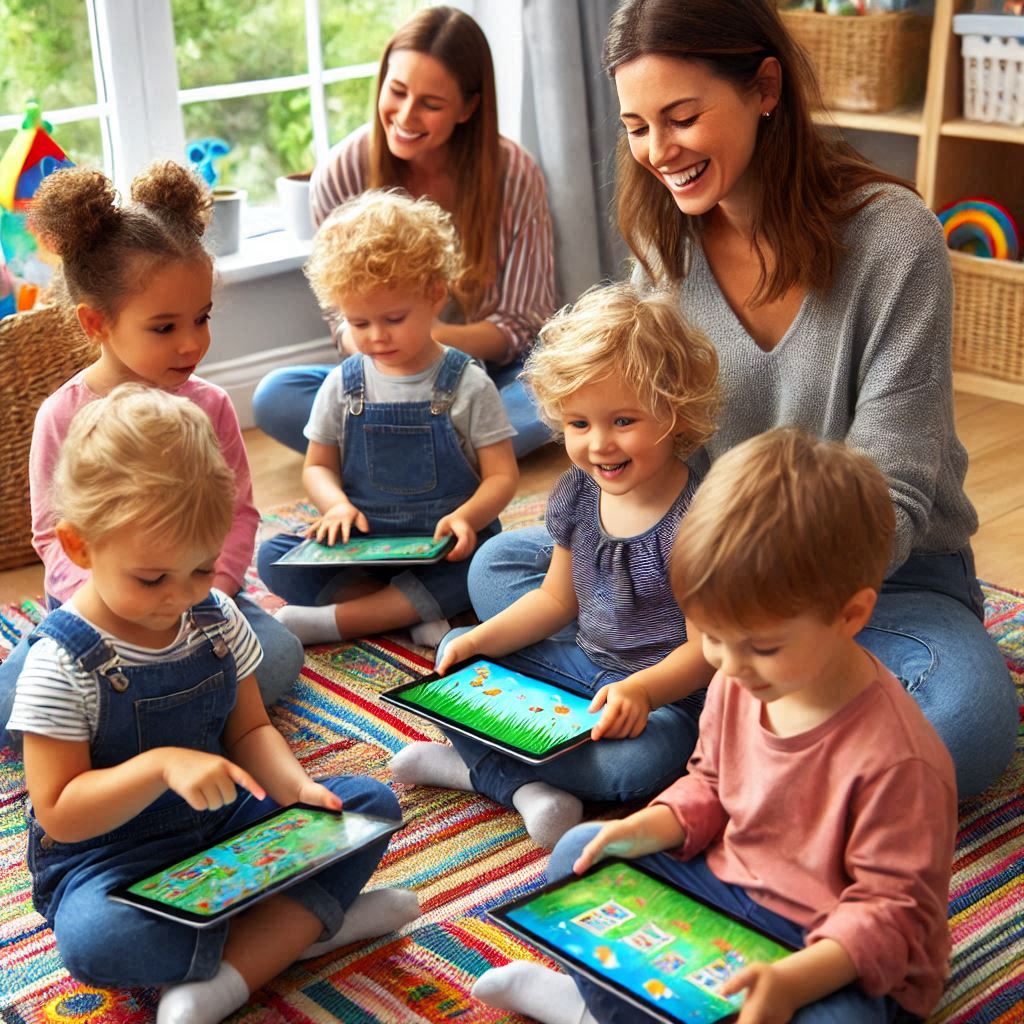
Best Educational Games For Preschoolers
Table of Content
Did you know that play is a child’s natural way of learning? Do not underestimate its benefits – it is a great tool for a child's cognitive, social and emotional growth.
One thing done at the College of Wisconsin-Madison has set up that children with tall utilization of creative play are two times more imaginative and appear 40% higher problem-solving capacity.
It is a good way of proactively imparting such skills as problem solving, creative thinking and social skills in youngs & children.
Do you recall that happy moment your kid successfully completes a puzzle, constructs a tall tower, or goes on a superhero crusade? Those laughing and cracking are not just creative but foundational to education throughout one’s life.
Why Educational Games Matter
Educator preoccupations for kids are portrayed to advance cognitive movement, social-emotional upgrade, and tongue and capability aptitudes in enthusiastic children. By playing these games, preschoolers can:
-
Update cognitive capacities: Move forward problem-solving, basic thought, and memory. According to a study by the American Academy of Pediatrics, play-based learning can increase a child's IQ by up to 17 points.
-
Make social capacities: Learn to arrange, share, and communicate effectively. Social interaction through play makes a contrast to children's sensitivity, understanding, and conflict-resolution aptitudes. Research shows that children who engage in frequent social play are 30% more likely to have stronger friendships and better social adjustment in school.
-
Boost emotional intelligence: Cultivate empathy, self-awareness, and self-regulation. Play allows children to explore their emotions and learn how to manage them in healthy ways.
Considers have found a strong relationship between play-based learning and the advancement of energetic experiences, which is urgent for triumph in both academic and social settings. Passionate learning-based play can make strides self-regulation in up to 67% of children.
Cognitive Development Games
-
Puzzles:
-
For little children (1-2 a long time): Cartoon-style level perplexes with huge and shining pictures to coordinate.
-
For preschoolers (3-4 years): Matching various 4-10 pieces of jigsaw puzzles.
-
For kindergarteners (5-6 a long time): Undoubtedly more complex perplexes that join jigsaw perplexes having between 10 and 24 pieces.
-
Research shows puzzle-solving can improve spatial reasoning skills by 32%.
-
Building Blocks:
-
Benefits: Creativity, or thinking skills and aesthetic or perceptual ability, including ability to appreciate forms/structures.
-
Recommendations: Wooden pieces, alluring enthusiastic tiles and LEGO Duplo.
-
Think about appearing kids who play with pieces score 15% higher in math availability.
-
Board Games:
-
Benefits: Promotion, shifting and ensuring adherence to standard operating procedures.
-
Recommendations: Filk games such as CandyLand and Chutes as well as Ladders.
-
Children engaging in board games show a 23% improvement in numeracy skills.
Social-Emotional Development Games
-
Role-Playing Games:
-
Benefits: Empathy, communication, and imagination.
-
Recommendations: Dress-up clothes, dolls, and play sets.
-
Part play makes strides in enthusiastic understanding in 70% of partaking children.
-
Cooperative Games:
-
Benefits: Teamwork, sharing, and problem-solving.
-
Suggestions: Card recreations, board diversions, and bunch exercises.
-
Kids included in agreeable recreations show 20tter peer collaboration.
-
Sensory Play:
-
Benefits: Sensory exploration, calming, and focus.
-
Recommendations: Playdough, water play, and sensory bins.
-
Tangible play makes a difference and makes strides in consideration ranges by 30% in preschoolers.
Language and Literacy Games
-
Alphabet Games:
-
Benefits: Letter recognition, phonics, and word building.
-
Recommendations: Magnetic letters, alphabet puzzles, and letter-sound games.
Alphabet games improve early reading readiness by 45%.
-
-
Storytelling Games:
-
Benefits: Imagination, vocabulary, and sequencing.
-
Recommendations: Storybooks, puppets, and storytelling prompts.
Kids exposed to storytelling show 24% vocabulary growth in six months.
-
-
Word Games:
-
Benefits: Vocabulary, spelling, and language skills.
-
Recommendations: Word games like Scrabble Junior and Boggle Junior.
Word games improve spelling test scores by up to 18%.
-
How to Incorporate Educational Games for kids into Daily Routines
To maximize the benefits of educational games for kids, consider incorporating them into your child's daily routine. Here are a few tips:
-
Set aside dedicated play time: Schedule regular play sessions to ensure consistent learning.
-
Choose age-appropriate games: Choose educational games for kids based on the developmental stage of your child.
-
Play together: Join your child in play to foster bonding and learning.
-
Create a stimulating environment: Provide a variety of toys, games, and books to encourage exploration.
Best Educational Games App for Preschoolers
In today's digital age, technology can be a powerful tool for early childhood education. Zape Learning is a best educational app for preschools that offers a wide range of engaging and Educational games for preschoolers designed to stimulate young minds.
According to a 2023 study by the National Association for the Education of Young Children (NAEYC), 90% of preschool educators believe that digital learning tools, when used appropriately, enhance learning and cognitive development in young children.
Zape Learning stands out with interactive activities, captivating visuals, and a user-friendly interface.
Over 85% of parents surveyed reported that their children show increased interest in learning after using educational apps like Zape, helping reinforce skills such as problem-solving, motor development, and early literacy.
By joining Zape learning app (instructive app for understudies) into your child's schedule, you'll supplement conventional play and upgrade their learning encounter.
How to Balance Screen Time for Kids:
While digital games can be beneficial, it's essential to balance screen time with traditional play. Here are a few procedures to play down screen time and maximize the benefits of advanced diversions:
-
Set Screen Time Limits: Clearly define and adhere to screen time rules.
The American Academy of Pediatrics recommends no more than 1 hour of high-quality screen time per day for preschoolers. -
Select High-Quality learning Apps: Decide on instructive apps for preschool such as Zape Learning app that are age-appropriate and offer intuitively learning encounters.
-
Co-View with Your Child: Watch and play games together to guide your child's learning and provide opportunities for discussion.
Co-viewing has been shown to increase knowledge retention by 42%. -
Take Screen Breaks: Encourage regular breaks from screens to engage in physical activity and creative play.
Frequent screen breaks reduce overstimulation and improve sleep quality by 27%.
Inventive gadgets such as Zape assist you to set up the inventiveness, charm and fun in learning through joining together a play based learning and movement approach to learning at the side of your child. Therefore, let’s commit our children to playing now and most importantly observe how they grow!
What are your favorite educational games for preschoolers? Yield criticism underneath together with your considerations and suggestions.














